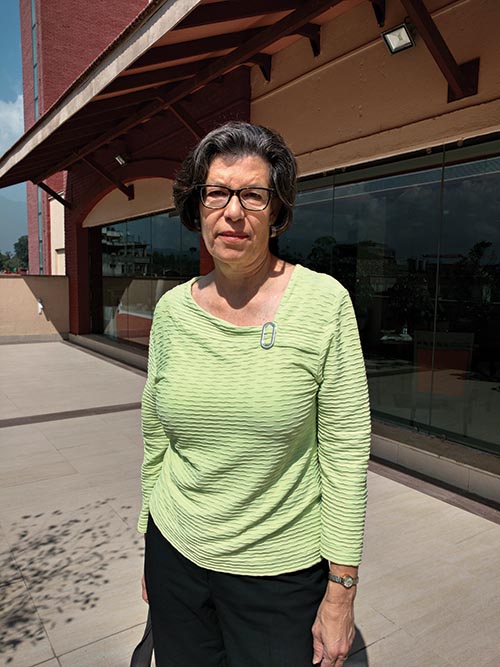‘News media spending a lot of time covering politics’
Kathmandu, October 14
Journalism trainer Deborah Potter said big media houses in Kathmandu were spending a lot of time in covering politics and people who make news, which do not relate to the general public.
Potter, who has spent 16 years as a correspondent for CBS News and CNN, and is founder of Washington-based journalism resource centre NewsLab, said while focusing on what was happening in politics, journalists lost sight of what was most important about it, how it affected the country, its international relations and people’s daily lives.
“It’s not that politics is unimportant, but how it is covered,” said potter, who is currently in Nepal to attend a few conferences and meet journalists in Nepal to talk about journalism, how journalists could do a better job and challenges to journalism in the digital world.
Referring to the coverage in Nepal’s media of the recent passage of the Health Insurance Bill, she said the story only told about the bill, who voted for it and who said what, but it did not tell how it affected a certain group of people making a certain amount of money.
“So these types of stories are lacking, or at least I have not seen them,” she said. “So one way to stand out is to say we cover that and we tell you this.”
Potter, who has already visited a few newsrooms and journalism schools in Kathmandu, also said journalism should inform the public why they would need to vote for a group or a candidate. She said just informing them about who was ahead or who was behind did not give them that kind of information.
“We make these kinds of mistakes in our country too and we still do this kind of coverage,” she said, expressing surprise that journalists in Nepal, and in India, are assigned to cover political parties, which she said could lead to journalists becoming expert on a certain party and not having any idea about the rest.
Potter also highlighted how the media in the US was facing a trust deficit. She suggested that only doing good journalism is not going to help trust, but journalists and news organisations have to be more transparent, pay attention to falsehoods and try to correct them and tell the audience how stories are put together. “You can’t just say a source said,” she said.
Potter also said journalists should be accountable and if they made a mistake, they should say sorry and mean it. She said it was also very important to be transparent about where the money came from, who was paying for this and not letting advertising bleed into news. There should not be something that looks like news but it is an advertisement and there has to be a distinction between news and opinion, and news and analysis, she said. “This is how we can regain trust.”
Potter suggested that news organisations should put in place training and development programmes for journalists, and journalists too should work to enhance their skills themselves with the help of social media and all the resources on the Internet.






